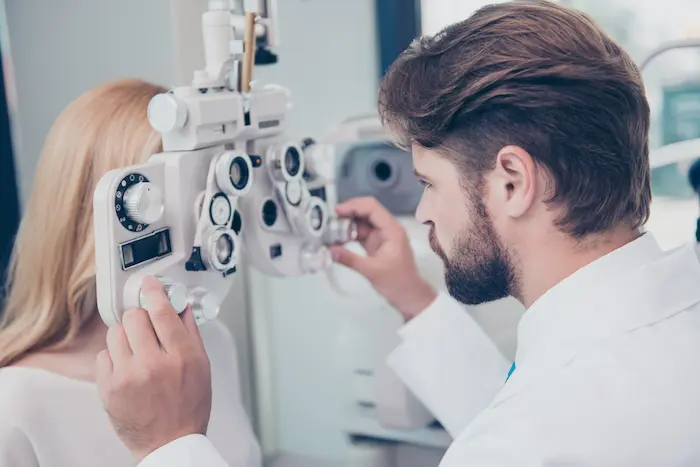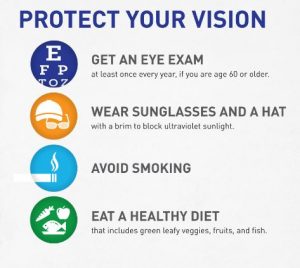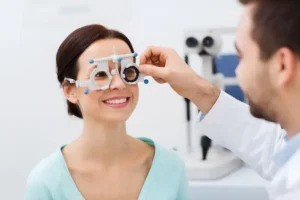Are you a resident of Summerfield, and wondering what to expect during a routine eye exam in Summerfield? Look no further, as this comprehensive guide will provide you with everything you need to know about the process, the benefits, and what you can anticipate from a thorough eye exam in Summerfield.
Importance of Regular Eye Exams in Summerfield
Eye exams in Summerfield are not just about correcting vision problems; they are essential for maintaining overall eye health and detecting potential issues before they become more serious.
As we age, our eyes can undergo various changes, and regular check-ups can help identify and address these changes before they have a significant impact on our daily lives. Whether you’re a long-time resident or new to Summerfield, understanding the importance of comprehensive eye exams in Summerfield is crucial for your well-being.
The Comprehensive Eye Exam in Summerfield, Process
When you visit an eye care professional for an eye exam in Summerfield, you can expect a thorough assessment of your visual health. The examination process typically includes the following steps:
Vision Acuity Test
The first step in an eye exam in Summerfield, is the vision acuity test, which measures your ability to see clearly at various distances. This test is usually conducted using an eye chart, and the results will help your eye care professional determine if you need corrective lenses, such as glasses or contact lenses.
Refraction Assessment
The refraction assessment is a crucial part of an eye exam in Summerfield, as it helps determine the precise prescription for any corrective lenses you may need. During this test, your eye care professional will use a phoropter, a specialized instrument, to measure the refractive errors in your eyes, such as nearsightedness, farsightedness, or astigmatism.
Slit Lamp Examination
The slit lamp examination is a vital component of a comprehensive eye exam in Summerfield. This test allows your eye care professional to closely examine the various structures of your eye, including the cornea, iris, lens, and optic nerve. By using a specialized microscope and a bright slit of light, they can detect any abnormalities or signs of eye diseases.
Dilated Eye Exam
During an eye exam in Summerfield, your eye care professional may also perform a dilated eye exam. This involves using eye drops to temporarily dilate (widen) your pupils, allowing for a more thorough examination of the back of your eye, including the retina and optic nerve. This step is crucial for detecting conditions such as glaucoma, macular degeneration, and diabetic retinopathy.
Additional Tests
Depending on your individual needs and any concerns raised during the initial examination, your eye care professional may also perform additional tests, such as:
- Tonometry: Measures the pressure inside your eye to check for signs of glaucoma.
- Color vision testing: Assesses your ability to perceive and differentiate colors.
- Peripheral vision testing: Evaluates your side (peripheral) vision
Here you like Guide to Caring for Your Eyeglasses in The Villages,
The Benefits of Regular Eye Exams in Summerfield
Maintaining regular eye exams in Summerfield offers a multitude of benefits, including:
Early Detection of Vision Problems: By undergoing routine eye exams in Summerfield any vision issues or eye diseases can be identified and addressed at an early stage, often before they have a significant impact on your daily life.
Prescription Updates: Your eyesight can change over time, and regular eye exams in Summerfield ensure that your corrective lens prescription remains up-to-date, providing you with optimal visual clarity.
Overall Eye Health Monitoring: Eye exams in Summerfield go beyond just vision testing; they also allow your eye care professional to assess the overall health of your eyes, detecting any underlying conditions or potential issues before they become more serious.
Improved Quality of Life: Clear and comfortable vision is essential for maintaining an active and fulfilling lifestyle. Regular eye exams in Summerfield can help you enjoy your daily activities, from reading to driving, with greater ease and confidence.
Preventive Care: By addressing vision problems and eye health concerns early on, regular eye exams in Summerfield can help prevent the progression of certain eye diseases, reducing the risk of vision loss or other complications.
Frequently Asked Questions (FAQs) about Eye Exams in Summerfield
How often should I schedule an eye exam in Summerfield?
The general recommendation is to have a comprehensive eye exam in Summerfield at least once every one to two years, or more frequently if you have a history of vision problems or eye diseases.
What should I do if I experience sudden changes in my vision or eye health?
If you notice any sudden changes, such as blurred vision, eye pain, or sudden vision loss, it’s crucial to schedule an immediate eye exam in Summerfield with an eye care professional.
Can Medicare or my insurance cover the cost of an eye exam in Summerfield?
Many Medicare and insurance plans do cover the cost of routine eye exams in Summerfield, though the extent of coverage may vary. It’s best to check with your provider to understand your specific benefits and coverage.
What should I expect during the eye exam in Summerfield process?
The eye exam in Summerfield process typically involves a series of tests and assessments, including vision acuity, refraction, slit lamp examination, and potentially a dilated eye exam. Your eye care professional will guide you through each step.
How can I find the best eye care provider in Summerfield?
When searching for an eye care provider in Summerfield, look for one with extensive experience, positive patient reviews, and a focus on personalized, high-quality care. You can also ask for recommendations from your primary care physician or other healthcare providers.




